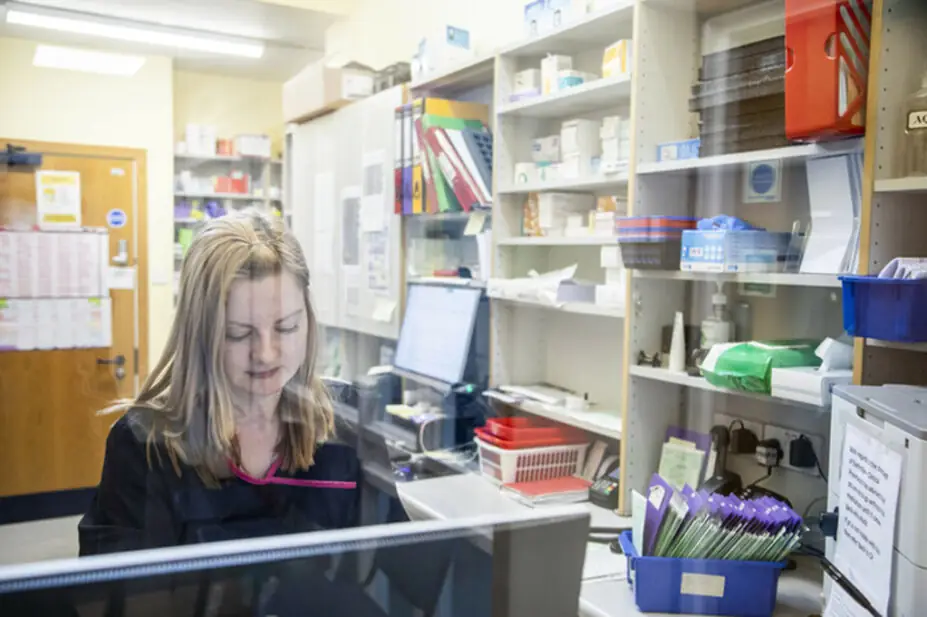
Grant Squibb / Connect Images / SCIENCE PHOTO LIBRARY
Nearly half of pharmacists are not accessing any form of career support or training, results from The Pharmaceutical Journal’s 2025 salary and job satisfaction survey have revealed.
Of 577 respondents to a question asking whether they had accessed any of the following forms of the support over the past year — a mentor; professional support; protected learning time; and structured training — 48% (n=276) said they had accessed ‘none of the above’.
Structured training was the most accessed form of support at 34% (n=197), followed by protected learning time at 27% (n=153), professional support at 15% (n=87) and a mentor at 13% (n=74).
Broken down by sector, those in the pharmaceutical industry were least likely to have accessed any support, at 55% of respondents. This was followed by hospital pharmacists, at 52% and community pharmacists, at 49%.
Community pharmacists were least likely to access a mentor, at 7% of respondents, while those in academia, including research, were most likely to, at 36% of respondents.
Academics were also most likely to access professional support, at 27% of respondents, followed by GP/primary care network (PCN) pharmacists at 26%. Hospital pharmacists and those in the pharmaceutical industry were least likely to access this support, at 10% for both sectors.
More than half of GP/PCN pharmacists accessed protected learning time (55%), with hospital, academic and pharmaceutical industry respondents accessing it the fewest, at 20% for each sector.
Academics were most likely to have accessed structured training (52%), while community pharmacists were least likely (30%).
Claire Anderson, president of the Royal Pharmaceutical Society (RPS), commented: “It’s essential that more pharmacists feel supported throughout their careers. Mentoring, expert advice and protected learning time are key to helping colleagues develop and thrive. Without them, the profession risks missing out on talent.
“We encourage our members to access the support available through the RPS, including our mentoring programme and one-to-one professional support service.
“To make full use of these resources, pharmacists need time and space to use them. That’s why we continue to call for regular, funded protected learning time across the NHS so pharmacists can develop alongside other healthcare professionals and continue delivering the best possible care for patients.”
Lynsey Cleland, chief standards officer at the General Pharmaceutical Council, said: “Every pharmacist and pharmacy technician needs to complete our revalidation requirements each year to be able to renew their registration and continue to practise. This includes completing a reflective account record, a peer discussion record and four continuing professional development records.
“The revalidation framework gives assurance to patients and the public that pharmacists and pharmacy technicians are regularly reflecting on their learning and practice.
“We performed a review of our revalidation framework in 2024. We are using the learnings from that review to help improve our future communications with pharmacists and pharmacy technicians about revalidation and how it can help them to reflect on and continually develop their practice. This will include the importance of post-registration learning and what possible career supports they could use in helping to advance their practice.”
In February 2025, the Guild of Healthcare Pharmacists (GHP) launched a campaign calling for pharmacists working in the NHS to have a minimum of 10% of their contracted hours protected for supporting professional activities.
In a statement published on 7 February 2025, the GHP said that there was currently no consistency in the UK, or within any of the four nations, in terms of how much time pharmacists are given for supporting professional activities.


